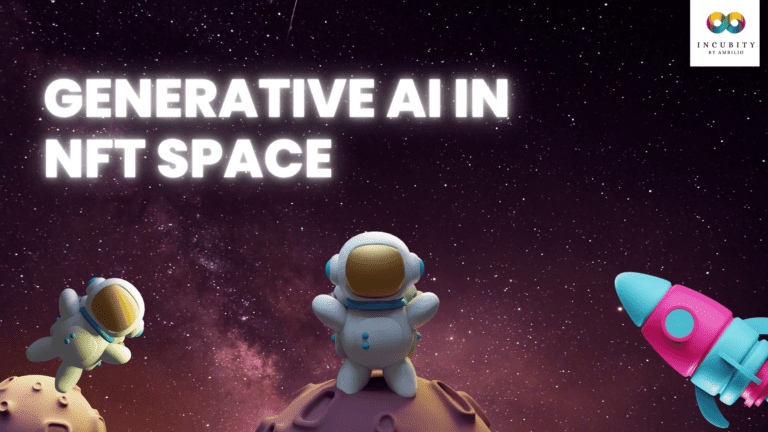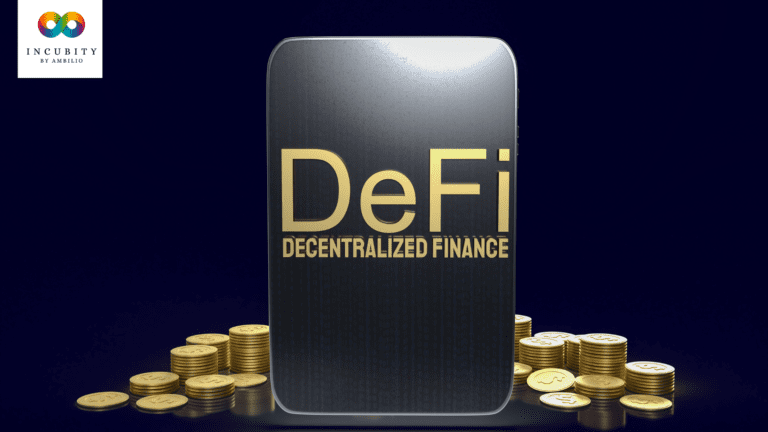Social networking has become an integral part of our daily lives, with billions of people using platforms like Facebook, Twitter, and Instagram to connect with friends, family, and colleagues. However, these centralized social networking platforms have been criticized for their lack of transparency, censorship, and control over user data. In recent years, blockchain technology has emerged as a potential solution to these problems by offering decentralized, secure, and transparent networks. In this blog post, we will explore how blockchain technology is revolutionizing social networking and changing the way we connect with others online.
Table of Contents
- Introduction to blockchain technology and its benefits
- Current issues with centralized social networks
- How blockchain can help create decentralized social networks
- Examples of blockchain-based social networking platforms
- Potential impact of blockchain on social networking in the future
Introduction to blockchain technology and its benefits
Blockchain technology is a decentralized, distributed ledger that records transactions on multiple computers. It was originally created to enable the digital currency Bitcoin, but its potential applications extend far beyond finance. The key benefits of blockchain technology include:
- Decentralization: One of the main advantages of blockchain technology is its ability to eliminate the need for a central authority or intermediary, such as a bank or social media platform, to verify transactions. Instead, transactions are verified by a network of users, which increases transparency, security, and trust.
- Transparency: Another key benefit of blockchain technology is its transparency. Because every transaction is recorded on a distributed ledger that is accessible to all network participants, there is a high level of transparency and accountability.
- Security: Blockchain technology uses advanced cryptography to secure transactions and prevent fraud. Once a transaction is recorded on the blockchain, it cannot be altered or deleted, making it virtually impossible to manipulate the system.
- Efficiency: Blockchain technology can significantly increase efficiency by streamlining processes and reducing costs. Because transactions can be processed instantly and without intermediaries, blockchain technology can eliminate the need for expensive and time-consuming manual processes.
Overall, blockchain technology has the potential to revolutionize many different industries and provide a more secure, transparent, and efficient way of conducting transactions. In the context of social networking, blockchain technology can enable decentralized networks that give users more control over their data and protect their privacy.
Current issues with centralized social networks
Centralized social networking platforms, such as Facebook, Twitter, and Instagram, have become ubiquitous in our daily lives. However, these platforms have been criticized for a number of issues, including:
- Data privacy: One of the biggest concerns with centralized social networks is data privacy. Users often have little control over their personal data, and social media companies have been known to sell or share user data with third parties without users’ consent.
- Censorship: Another issue with centralized social networks is censorship. These platforms have enormous power to shape public discourse and control the flow of information, and there have been numerous cases of social media companies censoring content or users.
- Lack of transparency: Centralized social networks are often criticized for their lack of transparency. Users have little insight into how their data is being used or who has access to it.
- Monopoly power: A handful of large social media companies have near-monopoly power over the market, making it difficult for new players to enter and for users to switch to alternative platforms.
- Fake news and misinformation: Centralized social networks have also been criticized for their role in spreading fake news and misinformation. These platforms have been used to disseminate false information, which can have serious consequences for public health, politics, and society as a whole.
Overall, these issues highlight the need for alternative social networking platforms that prioritize user privacy, transparency, and decentralization. This is where blockchain technology comes in, offering a potential solution to many of the problems associated with centralized social networks.
How blockchain can help create decentralized social networks
Blockchain technology has the potential to enable decentralized social networks that give users more control over their data and protect their privacy. Here are some of the ways in which blockchain technology can be used to create decentralized social networks:
- Decentralized identity: Blockchain technology can enable decentralized identity systems that give users more control over their personal information. Instead of relying on a centralized authority to verify identity, blockchain-based identity systems allow users to control their own identities and choose which pieces of personal data they want to share with different parties.
- Data ownership and control: Blockchain technology can give users more ownership and control over their data. By storing data on a decentralized network, users can control who has access to their data and how it is used. This can help to address the issue of data privacy that is common in centralized social networks.
- Incentivization: Blockchain technology can be used to incentivize users to participate in decentralized social networks. For example, users can be rewarded with cryptocurrency for contributing to the network, such as by creating content or sharing information.
- Community-driven governance: Decentralized social networks can be governed by the community of users rather than a centralized authority. Blockchain technology can enable transparent and democratic decision-making processes that give users a say in how the network is governed.
- Interoperability: Blockchain technology can enable interoperability between different decentralized social networks, allowing users to connect and share information across different platforms. This can help to address the issue of monopoly power that is common in centralized social networks.
Overall, blockchain technology has the potential to enable decentralized social networks that prioritize user privacy, transparency, and control. By leveraging the benefits of blockchain technology, it is possible to create social networks that are more democratic, decentralized, and community-driven than their centralized counterparts.
Examples of blockchain-based social networking platforms
While blockchain-based social networking platforms are still in the early stages of development, there are already several projects that are exploring the potential of this technology. Here are some examples:
- Steemit: Steemit is a blockchain-based social network that rewards users with cryptocurrency for creating and curating content. Users can earn Steem tokens by creating and upvoting content, and these tokens can be traded on cryptocurrency exchanges.
- Minds: Minds is a decentralized social network that uses blockchain technology to give users more control over their data. Users can earn tokens by contributing to the network, and these tokens can be used to boost content or access premium features.
- Peepeth: Peepeth is a decentralized social network built on the Ethereum blockchain. Users can post messages that are stored on the blockchain, giving them permanent and tamper-proof records of their interactions.
- Sapien: Sapien is a decentralized social network that focuses on user privacy and data control. Users can earn SPN tokens by contributing to the network, and these tokens can be used to access premium features or to support content creators.
- Mastodon: Mastodon is a decentralized social network that uses a federated model to connect different servers. Instead of relying on a centralized authority, Mastodon users can connect with others on different instances, each with their own rules and governance structures.
Overall, these examples show that blockchain-based social networking platforms are already starting to emerge, offering users new ways to connect, share, and earn rewards. While these projects are still in the early stages of development, they offer a promising vision for the future of social networking, one that prioritizes user privacy, control, and decentralization.
Potential impact of blockchain on social networking in the future
As blockchain technology continues to develop, it is likely to have a significant impact on the future of social networking. Here are some of the ways in which blockchain technology could transform social networking in the coming years:
- Greater user control and privacy: With blockchain-based social networks, users would have greater control over their personal data and privacy. By storing data on a decentralized network, users could control who has access to their data and how it is used.
- New monetization models: Blockchain technology could enable new monetization models for social networks. For example, users could earn cryptocurrency for contributing to the network, or they could use tokens to access premium features or content.
- Community-driven governance: Blockchain technology could enable community-driven governance models for social networks. By using transparent and democratic decision-making processes, users could have a say in how the network is governed.
- Interoperability: Blockchain technology could enable interoperability between different social networks, allowing users to connect and share information across different platforms. This could help to address the issue of monopoly power that is common in centralized social networks.
- Improved content moderation: Blockchain technology could enable more transparent and decentralized content moderation processes. By using blockchain-based reputation systems, users could rate content and flag inappropriate or misleading information.
Overall, the potential impact of blockchain on social networking is significant. By enabling more user control, new monetization models, community-driven governance, and improved content moderation, blockchain technology could transform social networking into a more democratic, decentralized, and user-centric space. As blockchain-based social networks continue to emerge and develop, we are likely to see new innovations that further enhance the user experience and promote greater transparency and trust in social networking.







